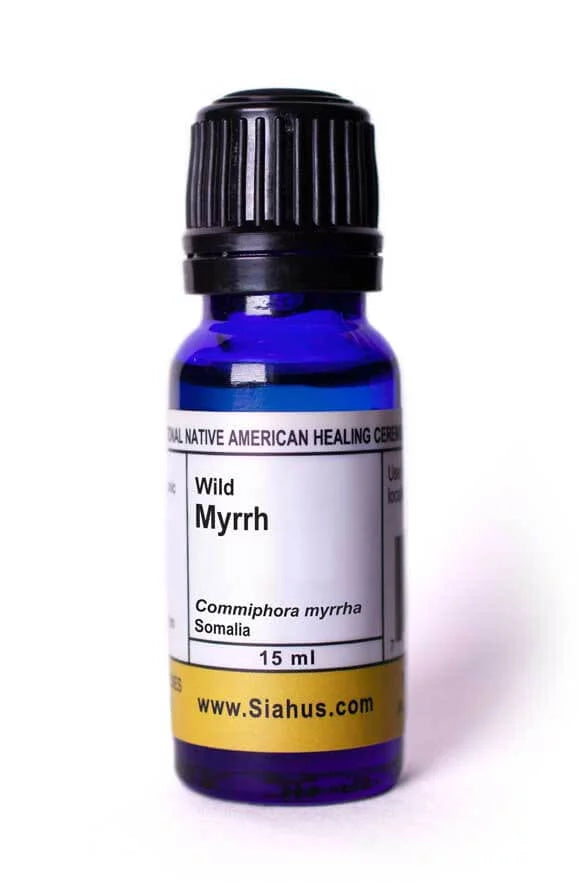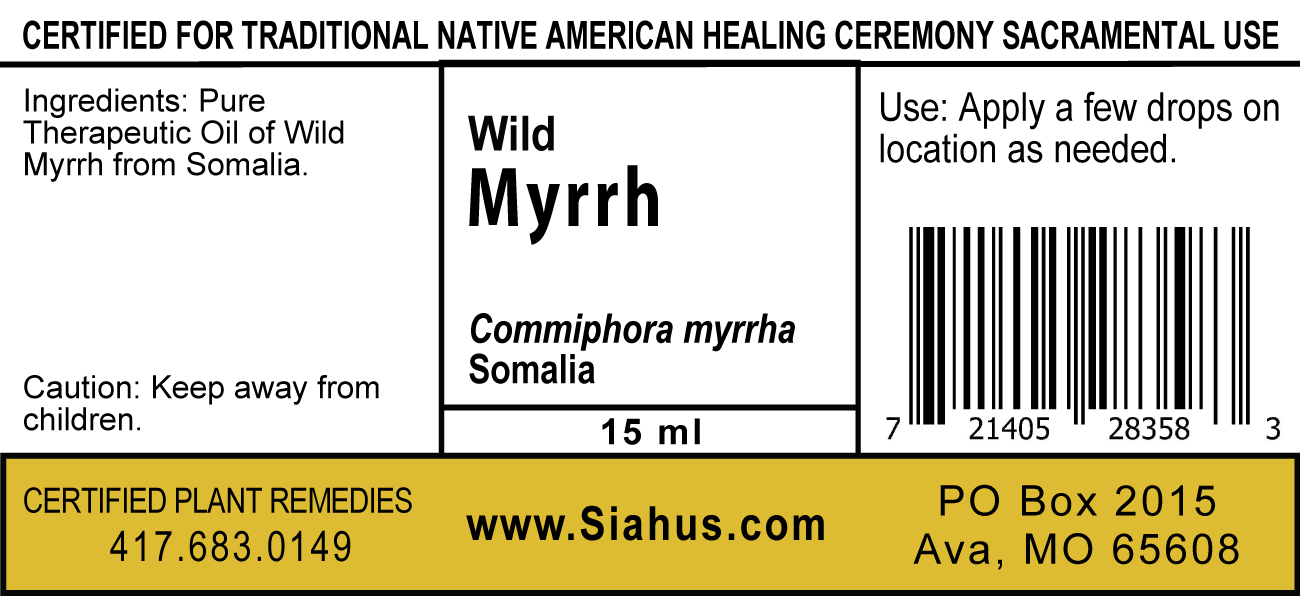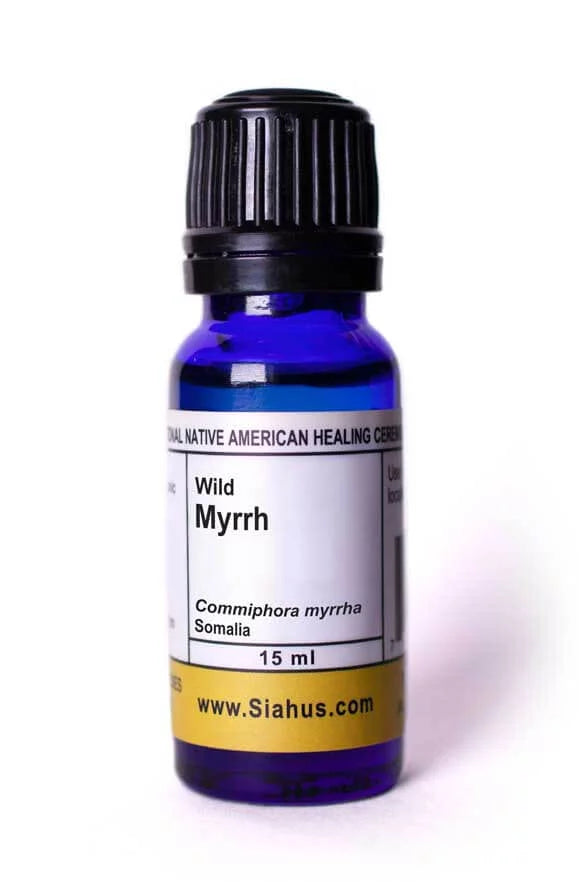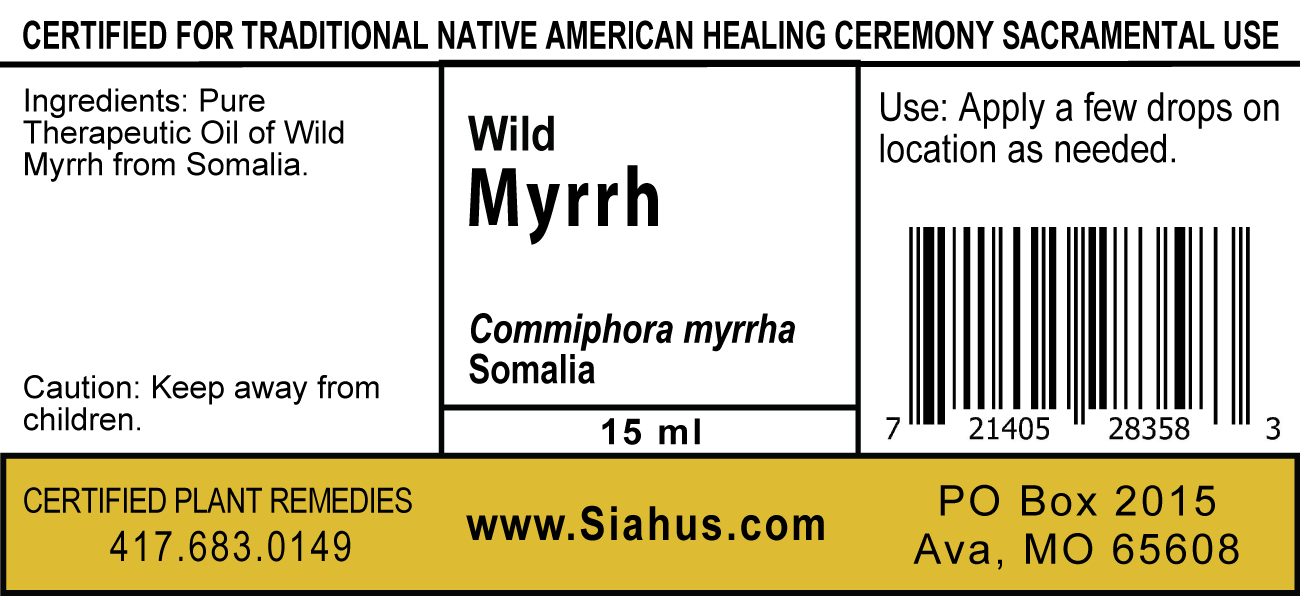AHQ Essentials
Myrrh - Essential Oil
Myrrh - Essential Oil
Couldn't load pickup availability
Myrrh, Wild: Somalia (Commiphora myrrha – Hydro Distilled)
The healing benefits of Myrrh go back thousands of years with over two hundred different species of Commiphora mostly found in dry, arid, rocky regions. Myrrh’s traditional uses are varied and numerous, but therapeutically it was most famously used to promote healthy skin, wound healing, stomach complaints, circulation, antiseptic, insect repellent, to prevent sunburns, embalming the dead, purification, menstrual disorders, perfume, and as a food additive.
Like Frankincense, Myrrh oil is extracted from the hardened resin and the quality of the essential oil will vary greatly depending upon the extraction method, species of plant, and country of origin. The thicker oil is normally derived from a solvent extract whereas the thinner myrrh from distillation. In India there are several species of Myrrh, with the Commiphora myrrha harvested mostly in the Mysore and Rajasthan regions. It contains chemistry that produces wonderful healing oil that is considered to be gentle and safe. The four major chemicals found in the Myrrh from India lack the necessary chemistry, C15H24, to classify as Sesquiterpenes, however most still choose to do so.
Primary Usages: Beneficial for the immune system (recovery, anti-tumoral, fighting bacteria, viruses, infections, fungal issues like Candida, ringworm, athlete’s foot), mouth issues (gum infections, gingivitis, moth ulcers, sore throat, voice loss), women (menstrual difficulties, vaginal thrush, stretch marks, cleansing obstructions in the womb), inflammation, and wound healing (relieves the itch and irritation of weeping eczema).
Secondary Usages: Respiratory conditions (asthma, bronchitis, catarrh, coughs, colds, infections, expelling mucus), stomach issues (diarrhea, dysentery, ulcers, parasites, appetite stimulant), and skin (chapped, cracked, wrinkles, mature skin).
Has Been Reported: Pain, general health tonic, and is effective for hyper-thyroidism and diabetes.
Descriptor: Immune Builder, Anti-inflammatory, Stimulates Liver, Aids Digestion, Decongestant, General Tonic.
Application: Rub on desired location. Take a drop or two in water. Smell or diffuse but after diffusing immediately diffuse a thin oil, like Lemon, to avoid the possibility of your diffuser being clogged by hardened Myrrh oil.
Caution: Considered safe under normal usage but in extreme amounts it may be fetotoxic.
Found In: Balance.
Influences: Throughout history the resin was used as an incense to promote spiritual and emotional wellbeing. The oil is uplifting and assists to release stuck emotions, awaken spiritual awareness, and motivate one to move forward.
Medicine Wheel: Primary North and Secondary East, West, and Center.
Blends Well With: Bergamot, Clove, Cypress, Frankincense, Lavender, Patchouli, Sandalwood.
Country of Origin: Somalia, Wild
Botanical Name: Commiphora myrrha
Plant Part: Resin
Note: Woody and Earthy
Size: 15 ml
Share




